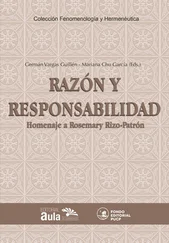“They’re on some kind of chemical high. Their food is full of who knows what hormones. They can’t be expected to learn or respect other kids who are trying to learn.”
“Sure.”
It was the kind of exchange, although exchange isn’t really the word, with which I’d grown familiar, a new biopolitical vocabulary for expressing racial and class anxiety: instead of claiming brown and black people were biologically inferior, you claimed they were — for reasons you sympathized with, reasons that weren’t really their fault — compromised by the food and drink they ingested; all those artificial dyes had darkened them on the inside. Your child, who had never so much as sipped a high-fructose carbonated beverage containing phosphoric acid and E150d, was a more sensitive instrument: purer, smarter, free of violence. This way of thinking allowed one to deploy the vocabularies of sixties radicalism — ecological awareness, anticorporate agitation, etc. — in order to justify the reproduction of social inequality. It allowed you to redescribe caring for your own genetic material — feeding Lucas the latest in coagulated soy juice — as altruism: it’s not just good for Lucas, it’s good for the planet. But from those who out of ignorance or desperation have allowed their children’s digestive tracts to know deep-fried, mechanically processed chicken, those who happen to be, in Brooklyn, disproportionately black and Latino, Lucas must be protected at whatever cost.
Noor interrupted my reverie of disdain: “Remind me, do you have kids?”
“No.” Noor was bagging the mangoes. I was tying, weighing, and labeling the bags.
“I couldn’t,” she said, “deal with navigating New York schools.”
How would Alex, or Alex and I, deal with it, if we reproduced? If I had enough money for private school, was I sure I wouldn’t be tempted? I was eager to change the subject. “Did you eat junk food growing up?”
“Never in the house, but with my friends — all the time.”
“What did you eat at home?” Noor was from Boston and was in graduate school now, I’d learned on our previous shift.
“Lebanese food. My dad did all the cooking.”
“He was from Lebanon?”
“Beirut. Left during the civil war.”
“And your mom?” I realized I’d been labeling the mangoes incorrectly, had entered the wrong code into the electric scale. I had to do them over.
“She was from Boston. My family on that side is Russian, Jewish, but I never knew those grandparents.”
“My girlfriend’s mom is Lebanese,” I said for some reason, perhaps to distance myself mentally from Alex and the topic of fertilization. Alena’s mother was also from Beirut, but who knew if Alena was my girlfriend. “Do you still have a lot of family in Lebanon?”
She paused. “It’s a long story. I have a kind of complicated family.”
“We have more than two hours,” I exclaimed with mock desperation, but, because Noor looked upset, or at least grave, I moved on quickly: “Nobody in my family could cook, so we—” But then she did begin to speak, both of us keeping our eyes on our work. She spoke quietly enough that we wouldn’t be overheard by the others, who were now discussing the merits of Quaker pedagogy.
My dad died three years ago from a heart attack and his family is largely still in Beirut, Noor said, although not in these words. I’ve always thought of myself as connected to them, even though I barely saw them growing up. My dad had a really strong sense of Lebanese identity and I did too. They tried to raise me bilingually. He was a very secular Muslim, as much a Marxist as anything else, and one of his parents had been Christian, but in the U.S., maybe as a reaction against all the racism and ignorance, he decided to join a mosque in Boston — really it was more of a cultural center than a mosque. I grew up going there a lot and developed a sense of difference from most of the kids I knew. In high school and then in college I was active in Middle Eastern political causes and majored in Middle Eastern studies at BU. I was involved with the BU Arab Student Association, although that could be complicated sometimes since my mom’s family was Jewish, even if not at all religious, and regardless, it was often tense with my mom because she felt I was only interested in my dad’s history, had identified with him at her expense. Anyway, about six months after my dad died, my mom started dating— dating was the word she used — an old friend of hers named Stephen, some kind of physicist at MIT, who I’d always known a little because we’d played with his kids occasionally when we were younger; he’d since been divorced. My mom told my brother and me about Stephen at dinner one night, said she knew it was going to be hard for us, but hoped we’d understand. We said we understood, although we were both weirded out, and my brother in particular was furious it was so soon, although I think he only expressed his fury to me.
I wasn’t living at home, Noor said, I was a senior in college and lived with friends, so I didn’t see Stephen very much, but my brother said Stephen was coming around all the time, and my brother and I were both pretty upset at the speed. We were both suspicious — how could we not be? — that their romance had a history, that it must have started when my dad was still alive. I told my brother that the relationship was probably just mom’s way of trying to deal with her grief, probably wasn’t serious, but every time I talked to my mom she seemed to be with Stephen. Well, about a year after my dad died I was planning to go to Egypt for three months because I’d been offered this fellowship at the American University in Cairo for recent Arab-American graduates, and I was also planning to visit Lebanon. A few days before my flight my mom called me and asked if I could meet her for lunch. It was immediately obvious to me from her tone that she was going to tell me she was remarrying, I knew it right away, and I knew she wanted to tell me in a public place because she thought it might temper my initial reaction, and then she would ask that I help her tell my brother, who was going to freak. I was surprised that I wasn’t angry, maybe in part because my parents had so clearly been estranged in the last years of their marriage, but I felt sad and a little sick and we met at some overpriced French place in the Back Bay.
At this point in Noor’s story, a voice came over the PA asking if dried mangoes were out of stock—“are we out of dried mangoes?”—or could somebody from food processing bring some up. This was unavoidably my job, no matter how reluctant I was to interrupt her narrative. I told Noor I would be right back, made a kind of pouch out of my apron that I filled with some of the small, labeled bags, and took them upstairs. As always, I was embarrassed to emerge into the semipublic space of the shopping floor with a bandanna in my hair and sporting a pastel apron. The aisles were mobbed — the co-op had fifteen thousand active members and a shopping area of six thousand square feet, not to mention a checkout system of radical, willful inefficiency — and I had to fight my way to the bulk section, where I deposited the mangoes. I didn’t get cell phone service in the basement, and now my phone vibrated in my back pocket, indicating I’d received a text, a one-word query from Alex: “Results?”
Back in the basement I saw another member had usurped my place beside Noor; he must have finished whatever he was bagging and then taken over my job. I was usually quiet and accommodating in the co-op, however critical my internal monologue, but this time I said: Excuse me, but I’d like to have my job back so I can continue my conversation with Noor. He said sure without a trace of resentment, and I resumed tying, labeling, weighing. The problem was that my butting in had drawn a few other members’ attention, and Noor wasn’t going to resume her story if they were listening. We worked in silence, which communicated to others that we knew they were listening, which further piqued their interest. An excruciating ten minutes passed in which Noor was quiet and I imagined possible conclusions to her story: Stephen turned out to be a virulent Islamophobe, and/or he worked for the FBI and tried to use her to infiltrate the BU Arab Student Association, or maybe the Lebanese part of her family had cut everybody off out of rage that her mom had plans to remarry.
Читать дальше










